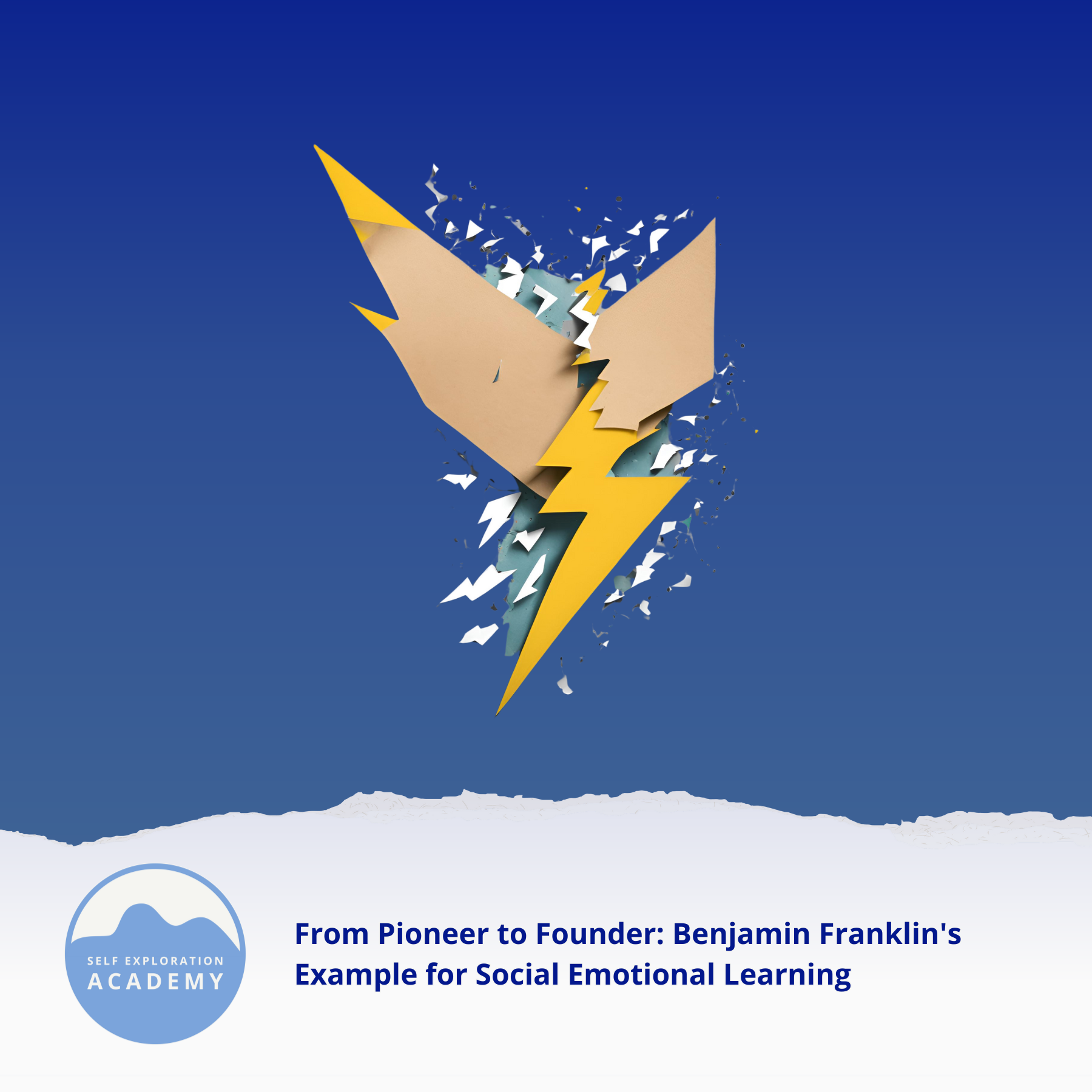From Pioneer to Founder: Benjamin Franklin's Example for Social Emotional Learning
How one of the Founding Fathers championed Social Emotional Learning and made a positive impact on the world.
Benjamin Franklin was one of the Founding Fathers of the United States and a polymath who made significant contributions to science and education in colonial America. Here are some of his specific achievements:
Electricity: Franklin is perhaps most famous for his groundbreaking experiments with electricity, including his famous kite experiment that helped prove lightning is electricity. He also invented the lightning rod as a way to protect buildings from being struck by lightning.
Inventions: Franklin was a prolific inventor, developing practical items that improved everyday life. Some of his most notable inventions include bifocals, which allowed people with farsightedness and nearsightedness to see clearly at both distances, and the Franklin stove, a more efficient heating system for homes.
Science: Franklin's curiosity extended beyond electricity. He studied meteorology and mapped the Gulf Stream current, a major ocean current that has a significant impact on weather patterns. He also founded the American Philosophical Society, a learned society that promoted scientific inquiry and collaboration among scholars.
Education: Believing that education was essential for a thriving society, Franklin established the Academy of Philadelphia, a precursor to the University of Pennsylvania. The Academy provided a more practical education than traditional colleges, focusing on subjects like science and engineering alongside classics and philosophy.
Franklin's work in science and education helped to lay the foundation for a more informed and innovative society in colonial America. His legacy continues to inspire scientific exploration and educational progress today.
Featured Courses
The Case for Social Emotional Learning
The story of Benjamin Franklin actually connects to social-emotional learning (SEL) in online programs in a couple of interesting ways, especially considering a program titled "Identity, Expression and Desire" at the Self Exploration Academy. Here's how:
Self-Awareness: Franklin's story highlights the importance of self-awareness, a key component of SEL. He identified his own shortcomings in social interactions and took the initiative to improve himself through his "Junto" project (a club focused on self-improvement). An online program like "Identity, Expression and Desire" could help students explore their own strengths, weaknesses, values, and goals, which is crucial for navigating the complexities of online and offline interactions.
Social Skills: While Franklin's scientific achievements are well-known, his success also hinged on his strong social skills. He developed his ability to persuade others, collaborate effectively, and navigate interpersonal conflicts. "Identity, Expression and Desire" could provide opportunities for students to develop these skills through online discussions, role-playing activities, or even simulations of online interactions.
Growth Mindset: Franklin's lifelong pursuit of learning and self-improvement exemplifies a growth mindset, another core principle of SEL. An online program like this could encourage students to view challenges as opportunities to learn and grow, which is particularly important in online environments where setbacks can be discouraging.
Identity Exploration: The program title "Identity, Expression and Desire" directly addresses core aspects of social-emotional development. By providing a safe space for students to explore these aspects of themselves online, the program could foster self-acceptance and positive self-esteem.
Overall, Benjamin Franklin's story demonstrates that intellectual pursuits go hand-in-hand with social-emotional intelligence. While online programs can deliver strong academic content, incorporating SEL aspects like those potentially covered in "Identity, Expression and Desire" can equip students with the skills they need to thrive in online learning environments and beyond.















Recently, we published an article that touched on the current plight of the public and nonpublic school system in the United States. Unending as the list of plight-related woes may seem, our ultimate goal is to highlight the very practical courses of action available to parents, community leaders and local school authorities to help remedy the adverse situations we are facing when it comes to educating our children.
As promised, here is a shortlist of viable options for improving the education of the next generation of world leaders. This list includes resources to fill in the gap of Social Emotional Learning experienced by most students, as well as core learning subjects such as English, History, Mathematics and Science.